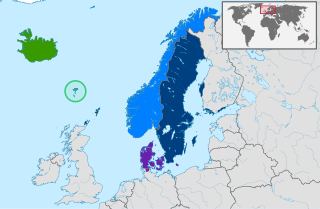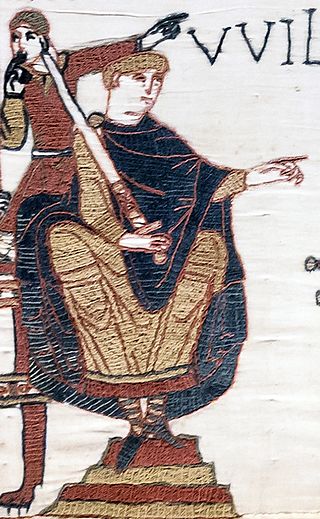It has been suggested that this article be merged into John (given name)#In other languages . (Discuss) Proposed since December 2023. |
This article needs additional citations for verification .(June 2016) |
Other language forms for the name John:
- Chon
- Dzon, Džon (Congolese, Serbian)
- Ean (Manx)
- Eoin (Irish)
- Evan (Welsh)
- Ewan (Scottish Gaelic)
- Ganix (Basque)
- Giăng (Vietnamese, Protestant Giăng )
- Giovanni, Ivan (Italian)
- Gioan (Vietnamese, Catholic Gioan )
- Gioann (West-Lombard)
- Giuàn (East-Lombard)
- Giovanni, Gianni (Italian)
- Giuàn (Emiliano-Romagnolo)
- Gion
- Gjon, Gjoni or Gjin (Albanian)
- Hannes (German from Johannes)
- Hannu (Finnish)
- Hans (Dutch, German, Swedish from Johannes)
- Henna (Arabic : حنّا)
- Hoani (Māori) [1]
- Hone (Māori) [2]
- Honza (Czech)
- Hovanes or Hovannes (Armenian)
- Ian (English)
- Iain (Scottish Gaelic—common form, though Ian is used in English)
- Ianto (Welsh)
- Ibane, Ibon (Basque)
- Ifan (Welsh)
- Ioan (Romanian, Welsh)
- Ioane (Samoan)
- Ioannis (Greek)
- Ion (Romanian, Basque)
- Ionel (Romanian)
- Ieuan (Welsh)
- Ivan (Bulgarian, Croatian, Russian, Ukrainian and other Slavic language nations)
- Ivanko (Ukrainian)
- Ivo (Croatian and some other Slavic language nations)
- Jaan (Estonian)
- Jack (nickname for John; not traditionally a name in itself)
- Jan (Catalan, Czech, Dutch, Polish, Norwegian)
- Ján (Slovak)
- Jani (Finnish)
- Janez (Slovene)
- Jānis (Latvian)
- Janko (Slovak, Hungarian)
- Janek (Czech)
- Janne (Finnish)
- János (Hungarian)
- Jăvan (Chuvash)
- Jean (French)
- Jens (Danish)
- Jhonas (Hebrew)
- Joan (Catalan)
- Joanes (Basque)
- Jóannes (Faroese)
- João (Portuguese)
- Johaiñe (Basque from Zuberoa/Soule province)
- Johan (Japanese, Dutch, Swedish, Danish, Norwegian, German, Faroese, Afrikaans)
- Johann (Germanic: German, Danish, Norwegian, Swedish)
- Jóhann (Icelandic, Faroese)
- Johannes (Germanic: German, Danish, Norwegian, Swedish, Dutch)
- Jóhannes (Icelandic)
- Jon (Basque, Norwegian)
- ジョン (Jon) (Japanese)
- Jón
- Jonas (Lithuanian, Germanic: German, Danish, Norwegian, Swedish, Dutch)
- Jovan (Serbian)
- Juan (Spanish, Filipino, Manx)
- Juhan (Estonian)
- Juhani (Finnish)
- Jöns (Swedish) [3]
- Manex (Basque)
- Nelu (Romanian)
- Nzuá (Angolan)
- Ohan (Armenian)
- Seán (Irish Seán, after the French Jean)
- Shane (Anglicised form of Seán)
- Shaun (American form of Sean)
- Shawn (Anglicised form of Seán)
- Sheik (Arabic)
- Siôn (Welsh)
- Sione (Tongan)
- Soane (Tongan)
- ᏣᏂ (Tsani) (Cherokee) in Cherokee syllabary
- Xoán (Galician)
- Yaḥyā يحيى, (Arabic, Turkish and Persian, for John the Baptist)
- Yan (Indonesian)
- Yanka (Belarusian)
- Yann (Breton)
- Yiannis (Greek)
- Vanya (Russian)
- Yochanan / Yohanan (יוֹחָנָן) (Hebrew)
- Yohannan (Malayalam)
- Yohannes (Ethiopian)
- Yohan, Yohanes (Indonesian, Malaysian)
- Yohan (Sinhalese, Sri Lankan)
- Yohanni (Makhuwa)
- 요한(Yohan)(Korean)
- Yonnachan (Malayalam)
- Youhanna (يُوحَنّا) (Arabic and Persian, for John the Apostle)
- Youhannon (Malayalam)
- Yuhana (Mandaic)
- Yuhanna (Syriac)
- 約翰 (Yuēhàn) (Chinese in Traditional Chinese characters, Protestant translation)
- 若望 (Ruò wàng) (Chinese in Traditional Chinese characters, Catholic Church translation)
- 強 (Qiáng) (Chinese in Traditional Chinese characters, colloquial transliteration based on English; literally "strong")
- Zane
- Rayan, Rayappan, Sinappan (Tamil)










